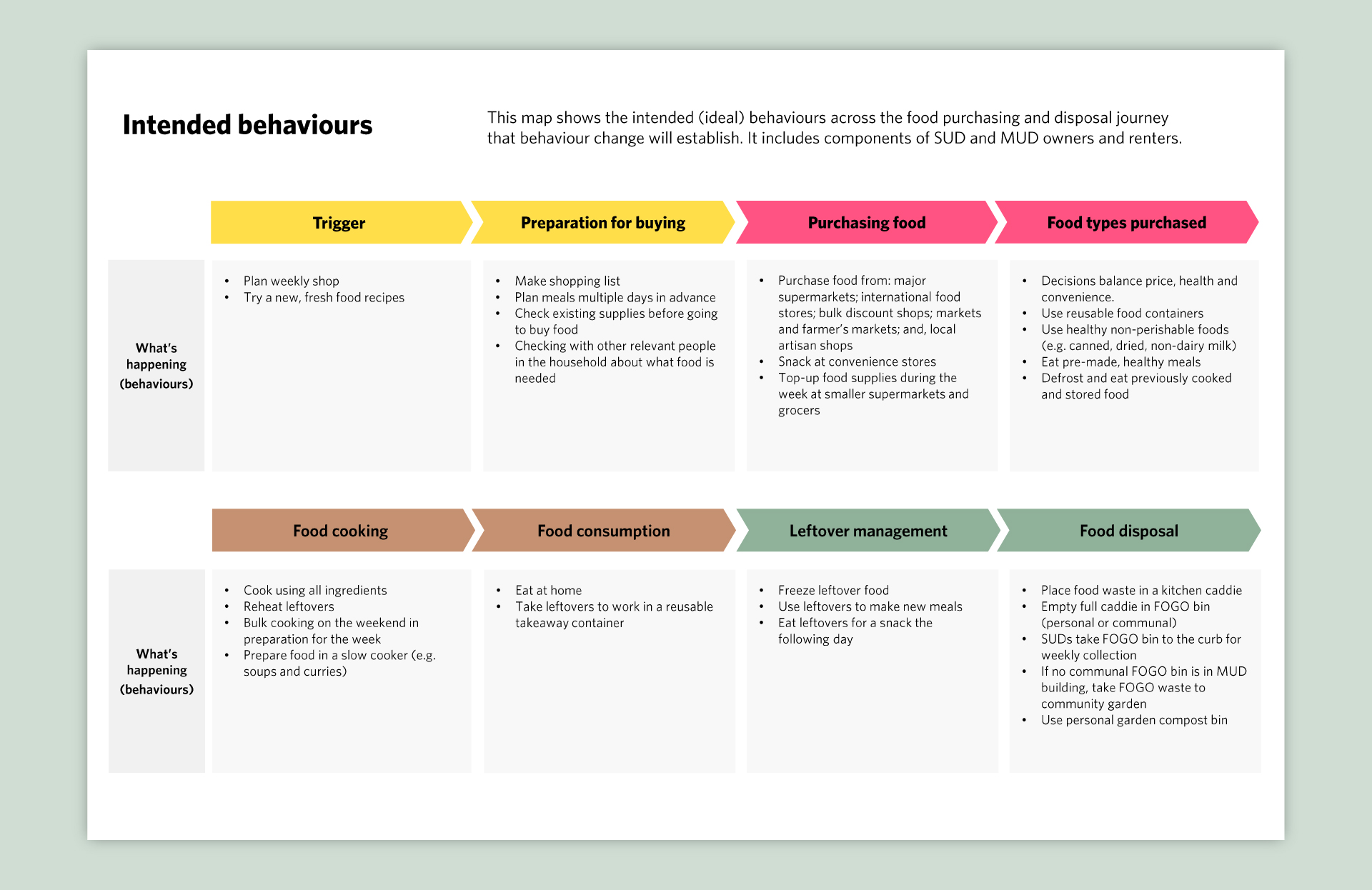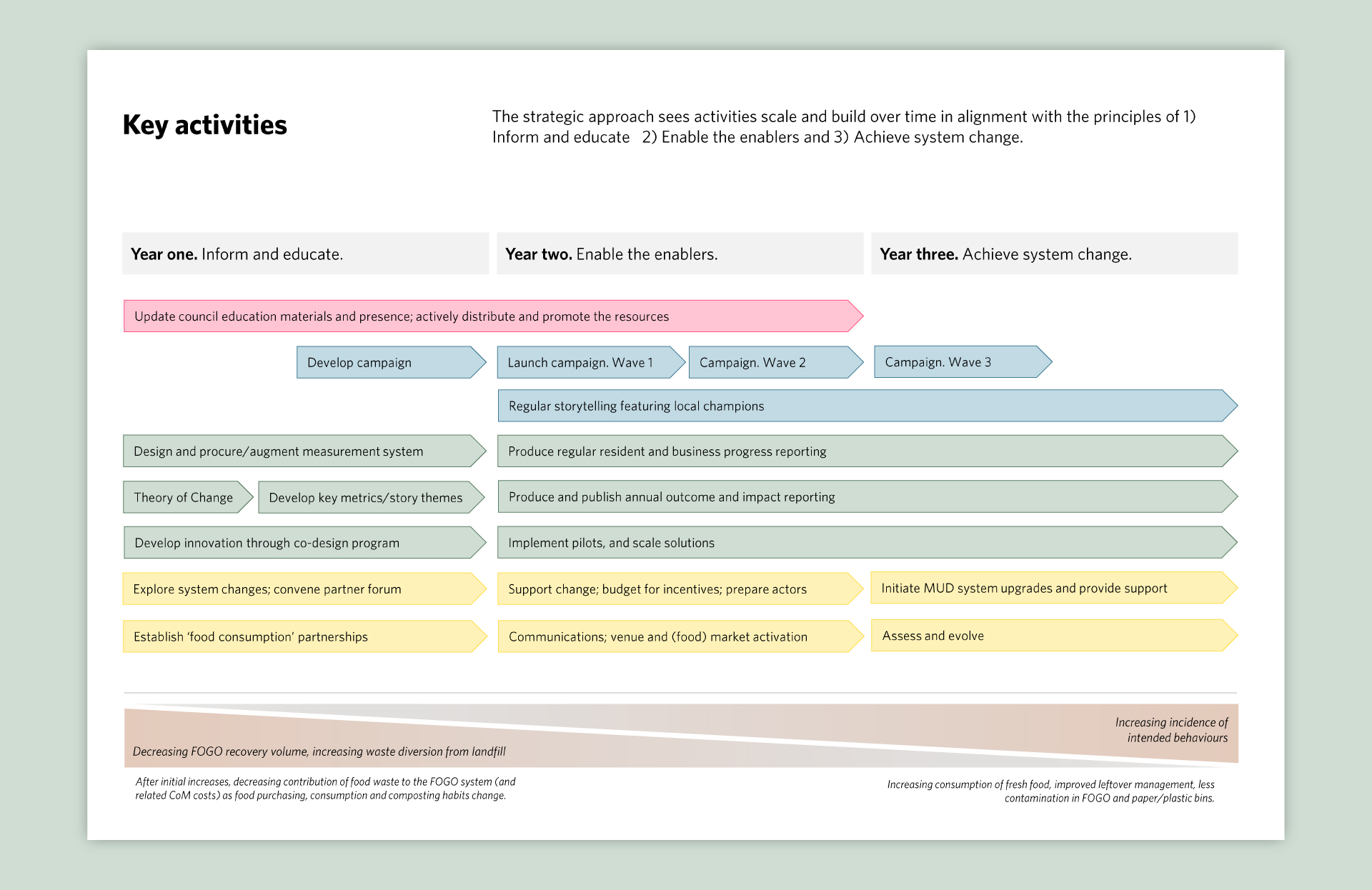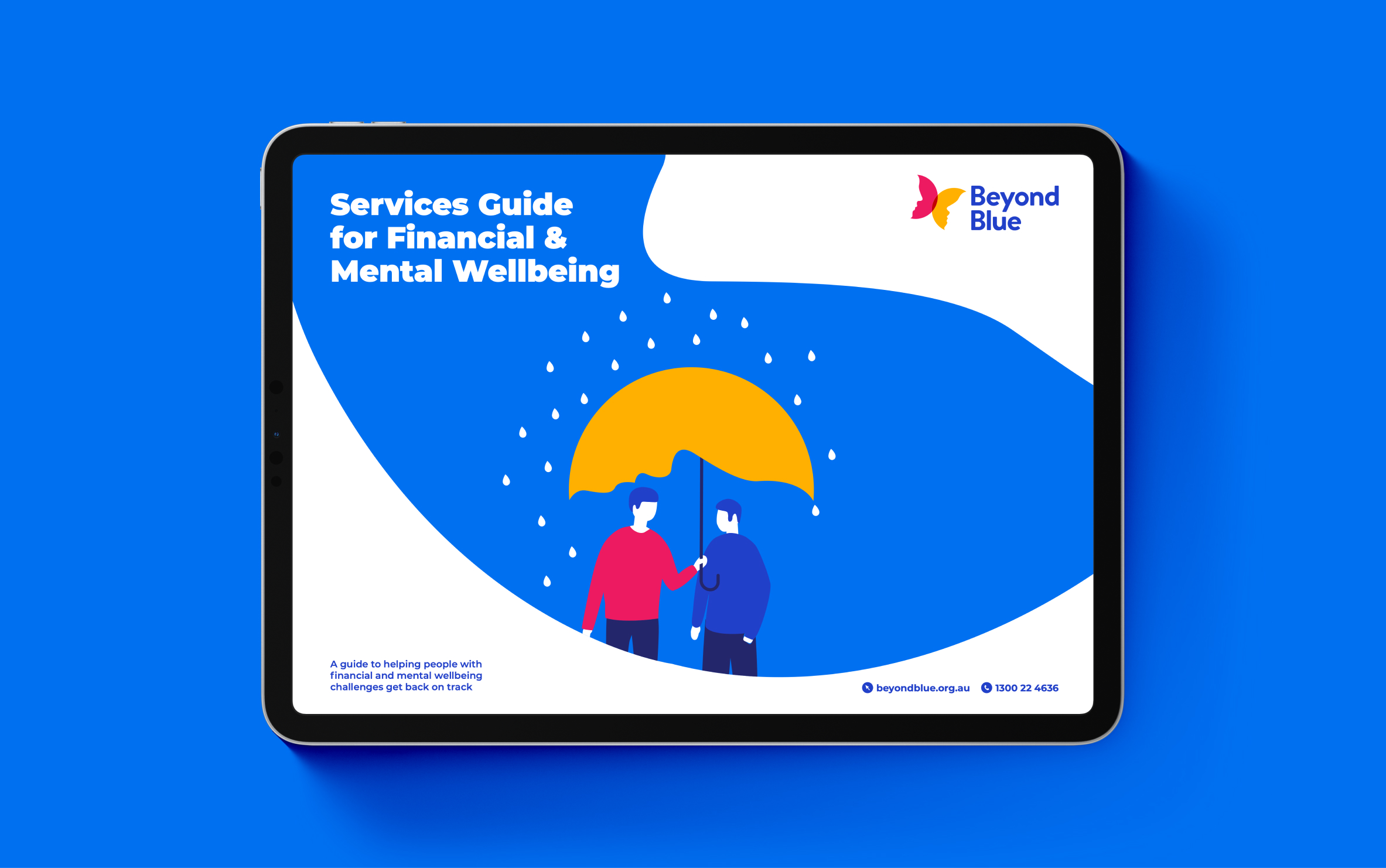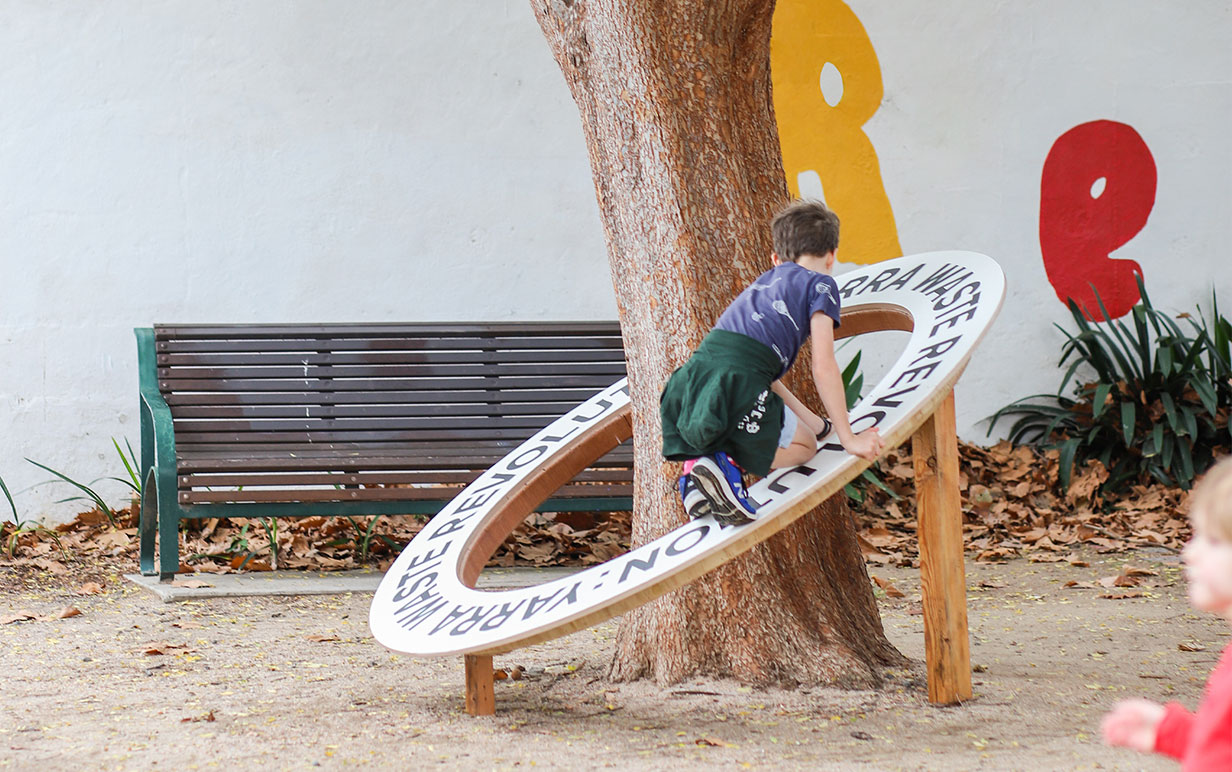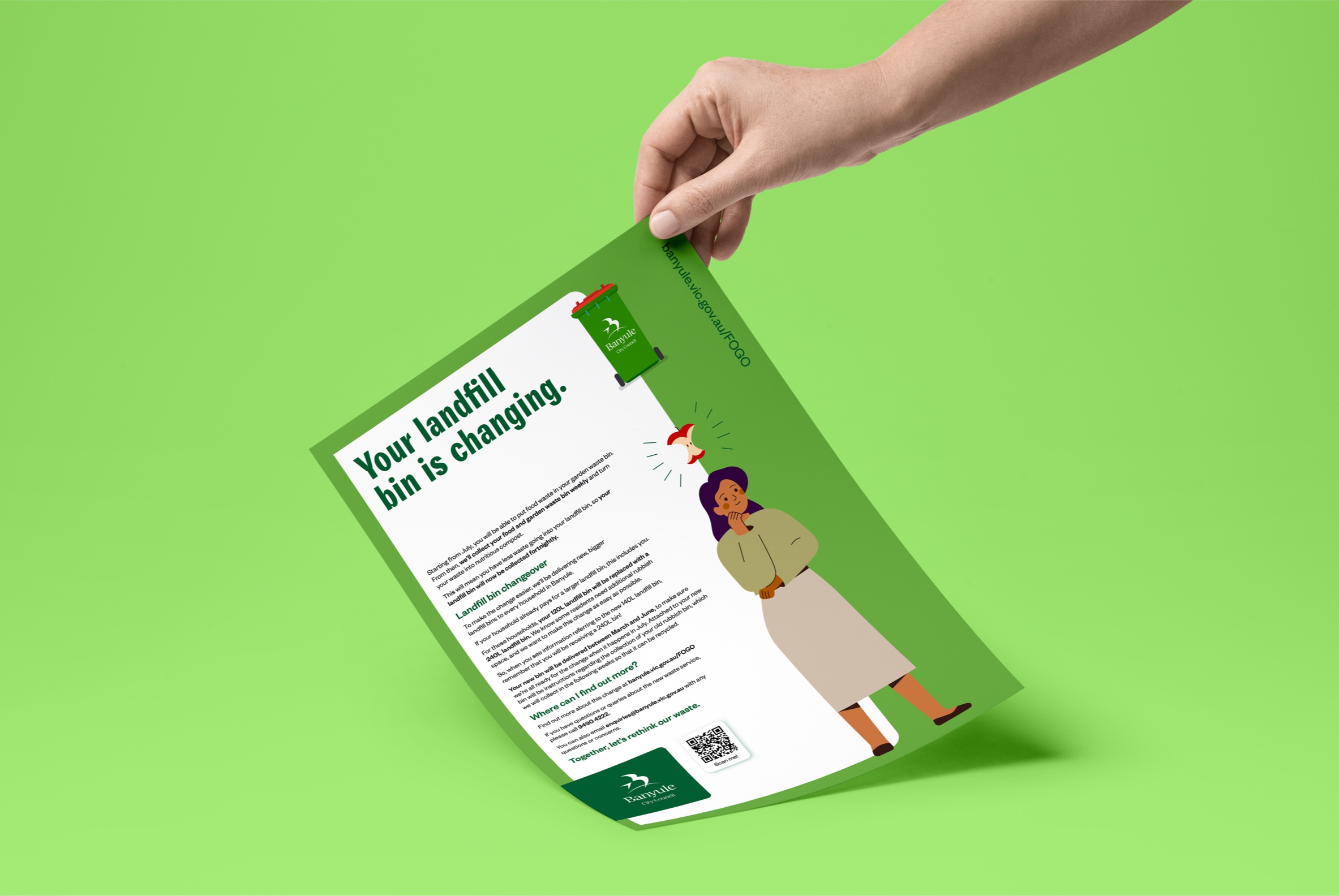Developing an evidence-based waste behaviour change strategy to drive positive food waste recycling behaviours in Australia’s second biggest city.
Learn more about this project
Challenge
The City of Melbourne has a diverse population, living in different settings to other Victorian local government municipalities. The Circular Economy team sought to establish evidence behind an approach that would motivate ideal waste behaviours across residents in single and multiple unit dwellings, to achieve organic waste diversion and contamination targets.
The City has twin objectives to: increase resource recovery; and, reduce contamination in mixed recycling. Approximately 40% of residual waste is food waste (that’s huge!), so it’s an important focus.
Response
Ellis Jones was commissioned to conduct research and develop a waste behaviour change strategy, plan and creative campaign approach to drive intended food and garden organic (FOGO) recycling.
Selected for our deep experience developing waste behaviour change strategies and communications across Victorian councils, we didn’t arrive with assumptions about the Melbourne population’s waste behaviours.
Our team took a ‘food journey’ approach which acknowledged that food buying and consumption habits impact what is (or isn’t) placed in the recycling bin, as well as knowledge of how to use the recycling system and its benefits.
The project comprised:
- Secondary research review, comprising academic and government agency research reports to aggregate findings, insights and best practice approaches.
- Focus groups with owners and tenants of single and multiple unit dwellings, and small business owners, including international students, to understand the food journey and influencing factors at each stage.
- Event manager interviews and event participant intercepts to determine waste behaviours at council managed events.
- An expert audit of existing communication collateral based on accepted behavioural frameworks, providing effectiveness scores and advice.
- Behaviour change strategy and three-year plan to initiate and ladder communications and interventions over time.
- Creative concepts for testing with target audiences.
Outcomes
Project outcomes included:
- Behavioural insights were mapped to user typologies and applied in developing strategic approaches to different dwelling types, including interventions and messaging.
- With the finding that many high-rise buildings don’t have FOGO systems, and owners corporations cannot currently be compelled to install them, system mapping was undertaken to define system actors and influencers, with approaches defined for each.
- Potential partners working in food health promotion and sustainability were identified, with the aim of channelling existing programs and tools to Melbourne residents.
- A three-year waste behaviour change strategy and plan set realistic timeframes for achieving change, supporting early adopters to influence peers in local neighbourhoods and working with government agencies to regulate FOGO system maturity.
- A focus on co-design with local communities included suggested interventions and incentives for prototyping and testing.
- Collaborative workshopping with council’s communication team shared behaviour change knowledge and embedded FOGO messaging and tactics in comms channels and tools.
Endorsed by council, Ellis Jones was invited to present the behaviour change approach to the M9 group of Melbourne councils, all of whom expressed genuine excitement at adopting similar approaches.
We wish to thank BehaviourWorks Australia for their input and advice on this project.
Discipline
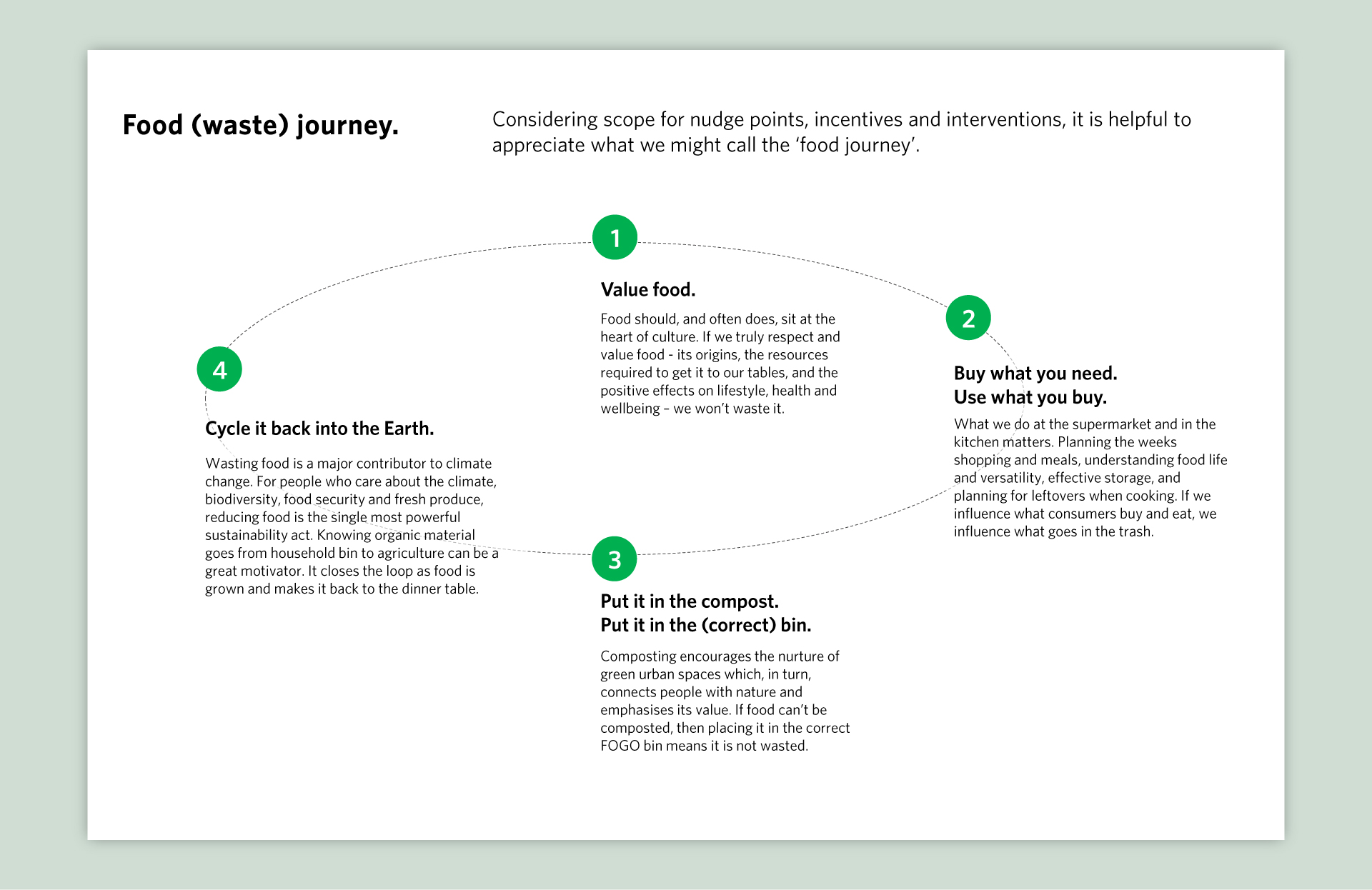
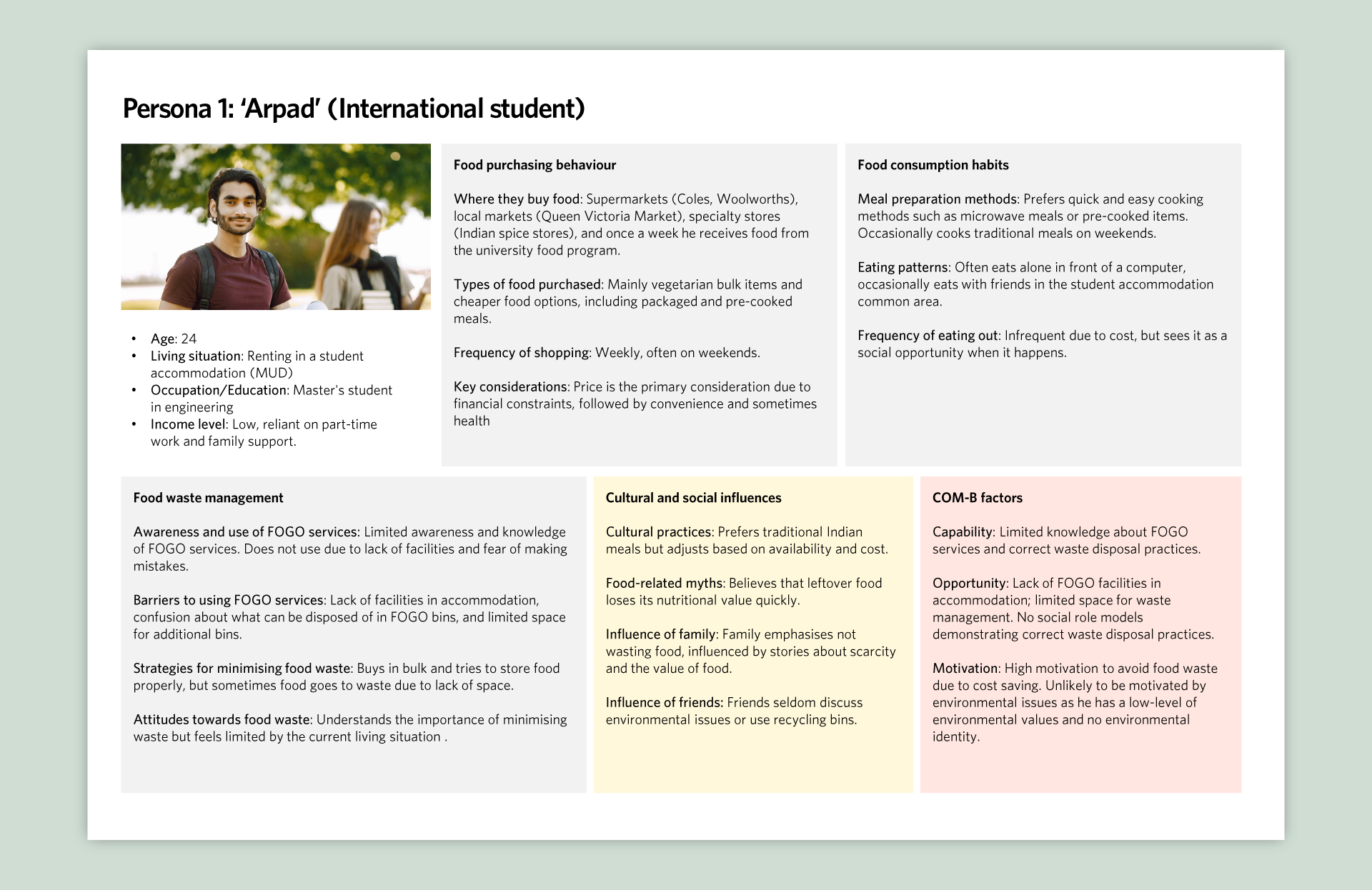
“Working with Ellis Jones really broadened and deepened our understanding of how behaviour change strategies can drive intended waste behaviours in Melbourne. Beyond bringing valuable behavioural science expertise, the team were thoughtful, responsive, and creative.”
—Jordi McInerney, Acting Director Waste & Recycling, Strategy, Planning and Climate Change, City of Melbourne
